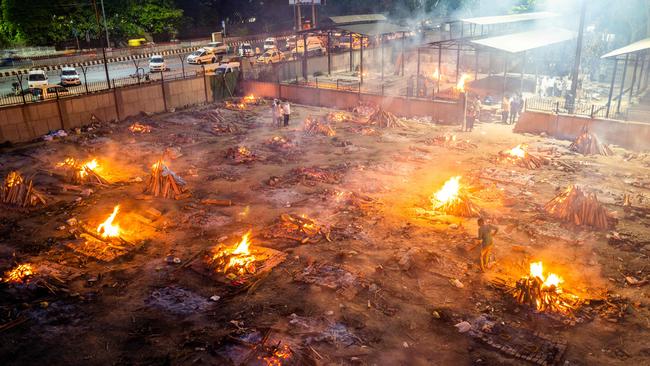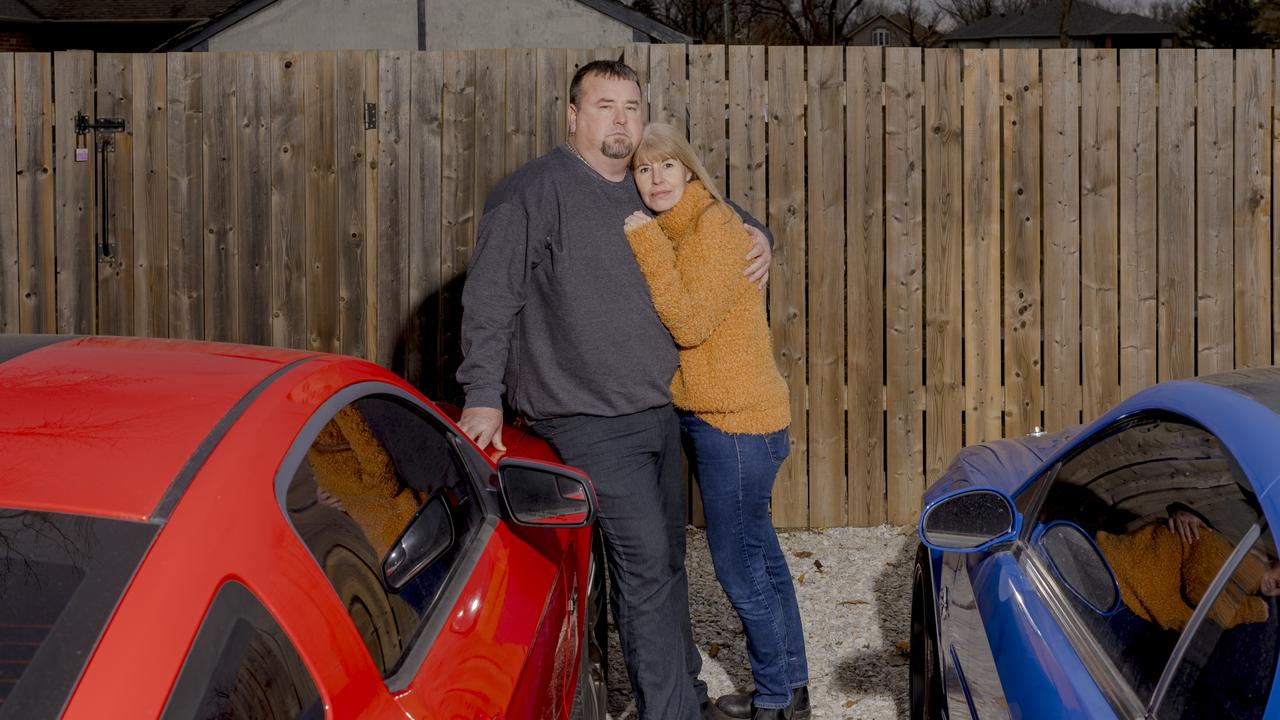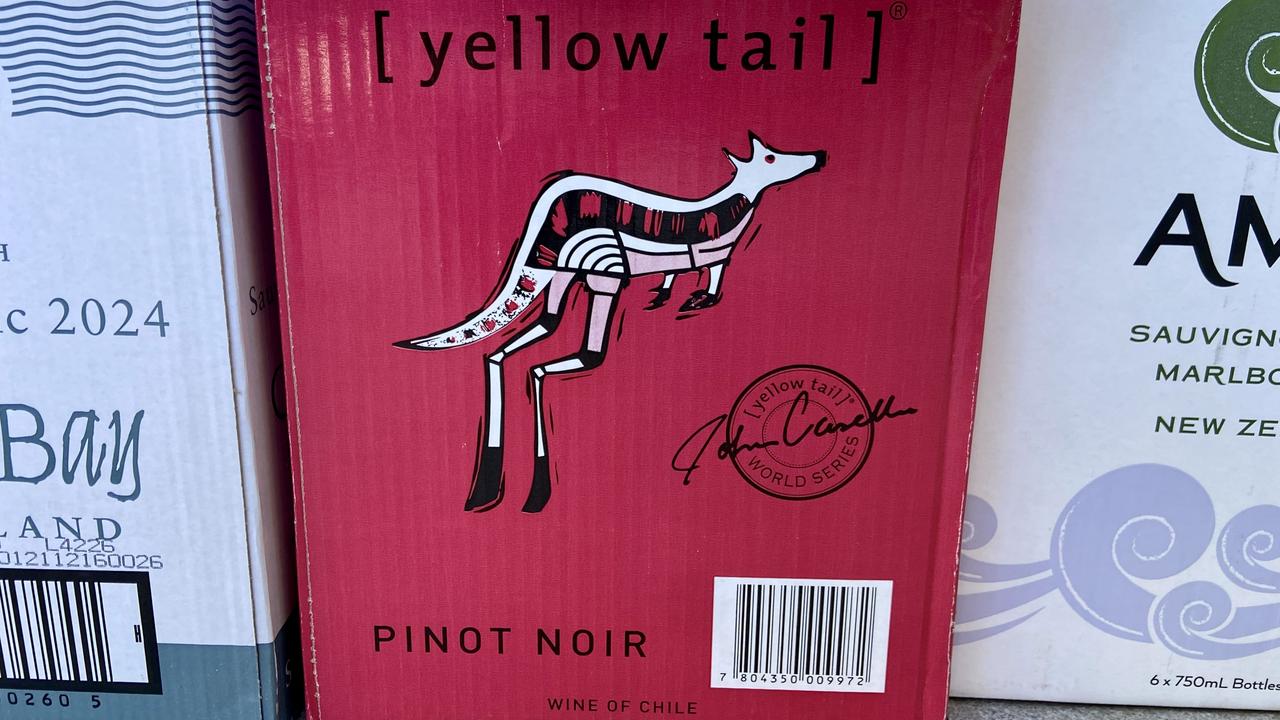World answers call to save India’s Covid crisis
India has ordered its armed forces to help tackle a tidal wave of coronavirus infections that is killing at least 117 Indians every hour.

India has ordered its armed forces to help tackle a tidal wave of coronavirus infections that is killing at least 117 Indians every hour, a crisis the World Health Organisation has described as “beyond heartbreaking”.
The UN health agency was the latest on Tuesday to pledge staff and supplies to the stricken country, along with Britain, Germany, the US, Australia, Russia and China, which have all responded to the emergency in India by promising oxygen and medicines.
After several days of silence from the US, the Biden administration has made a flurry of announcements. It will now send raw materials for the production of vaccines, oxygen supplies, Remdesevir, and a strike team from the Centres for Disease Control and Prevention.
Officials also announced on Tuesday AEST plans to share up to 60 million doses of the AstraZeneca COVID-19 vaccine — which has not been authorised for use in the US — as the country faces mounting criticism that it is hoarding vaccine stockpiles.
The first 10 million doses would be made available once Food and Drug Administration approvals were completed, with the remaining 50 million to be distributed to needy countries by July.
White House security council officials confirmed that Prime Minister Narendra Modi had also raised India’s request for a waiver on intellectual property and patent rights to produce other US-developed COVID vaccines during a phone call on Monday with President Joe Biden, but declined to give further details.
More than 53 per cent of adults in the US have now received at least their first dose of a vaccine, while just 1.6 per cent of Indians have been fully vaccinated.
India has run short on raw materials to produce vaccines, partly due to a US ban on the export of such ingredients, which the Biden administration partially lifted on Monday.
But even among those in India who have been lucky enough to get a vaccination, it has not proven a golden bullet, with many still falling ill.
Hospitals across India — particularly in Delhi — have been overwhelmed, and crematoriums are running out of space as the country recorded a million new cases in just three days.
The country confirmed another 323,144 new infections on Monday, pushing its national total to just over 17.6 million, and its death toll to more than 198,000.
Reports and images of people dying on the pavement waiting for treatment have underscored the severity of the surge.
Australian teacher Jodi O’Reilly was hospitalised with COVID in the western city of Pune earlier this month, four days after receiving her first shot of Covishield, the Indian-produced version of AstraZeneca.
Ms O’Reilly’s PCR test also came back negative, a phenomenon increasingly seen among COVID-19 cases in India and which may explain the under-reporting of deaths. Her infection was only confirmed through lung scans and blood tests.
She told The Australian she felt lucky to have found a hospital bed and been able to receive oxygen in a private hospital, just over a week before a steep surge in infections forced hospitals with just a few hours of oxygen left to issues pleas online for more supplies.
“I was in hospital just as things were starting to peak in Pune,” she said. “My bed was being filled as I was being checked out last Thursday, and there were people being wheeled into emergency on oxygen.”
Amid the horrifying surge, the country has seen a rise in private jet travel as India’s wealthiest families flee ahead of new travel restrictions imposed by more than a dozen countries, including Australia, Canada, Hong Kong, and the Maldives.
“It’s not only the ultra-rich,” Rajan Mehra, chief executive officer at New Delhi-based private jet firm Club One Air, told Bloomberg. “Whoever can afford to take a private jet are taking private jets.”
The Indian government has said more than 500 oxygen generation plants will be set up in healthcare centres across the country in coming days, while the first “oxygen express” train carrying 70 tonnes of oxygen reached Delhi on Tuesday.
Indian Chief of Defence Staff General Bipin Rawat said oxygen would also be sent to hospitals from armed forces reserves, and retired medical military personnel would join COVID-19 health centres. Where possible, military medical infrastructure would also be made available to civilians.
The WHO is also sending oxygen, mobile field hospitals and lab supplies, and has instructed more than 2600 health experts working in other areas to help Indian authorities battle the viral surge.
WHO chief Tedros Adhanom Ghebreyesus said the organisation was “doing everything we can, providing critical equipment and supplies”, and that the situation in India was “beyond heartbreaking”.
Maria van Kerkhove, WHO technical lead on COVID-19, said the exponential growth in India’s case numbers was “really, truly astonishing”.
Just weeks after Mr Modi declared India had “defeated” COVID-19, his government has been accused of fuelling the second wave by encouraging participation at mass religious gatherings and huge political rallies ahead of state elections in recent months.
But the Biden administration has also been widely criticised in India for its perceived indifference to the COVID crisis — a delay some analysts attribute to State Department vacancies in top South Asia positions.



